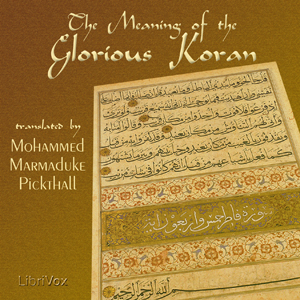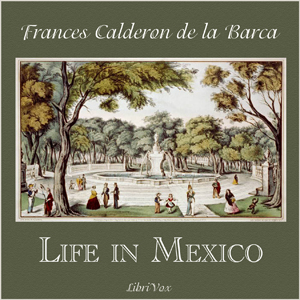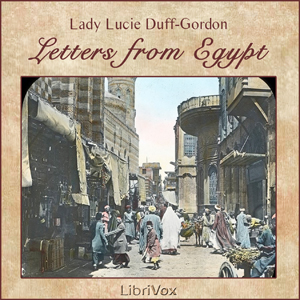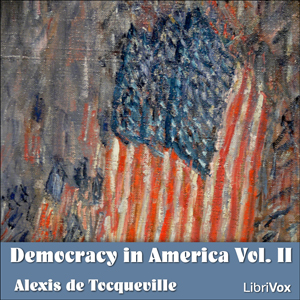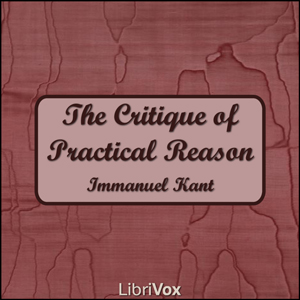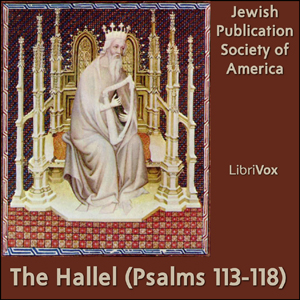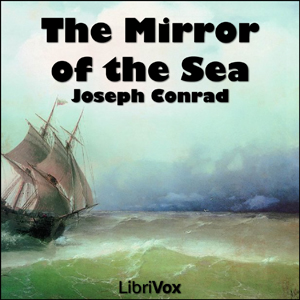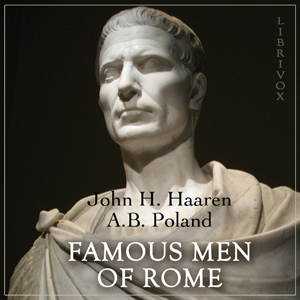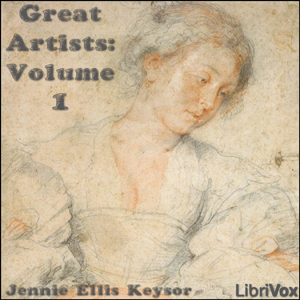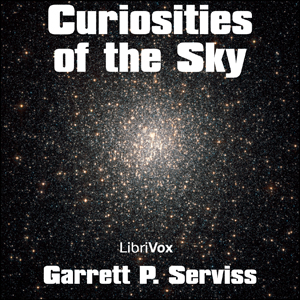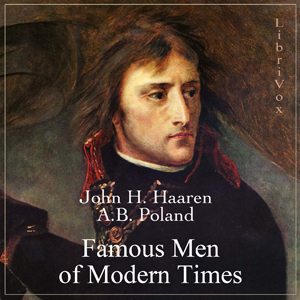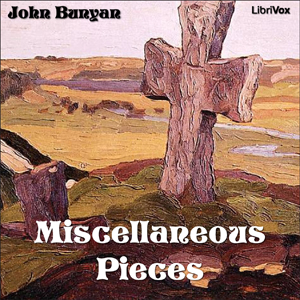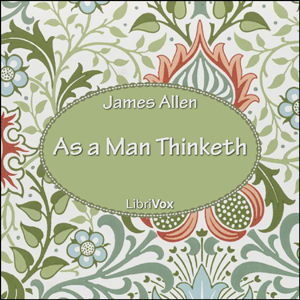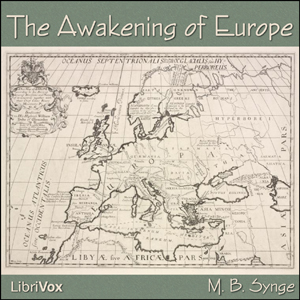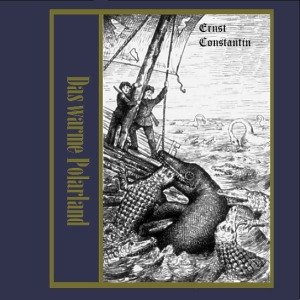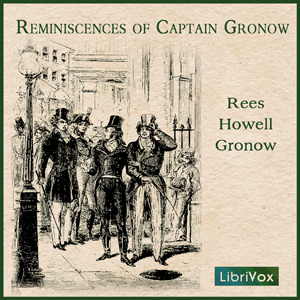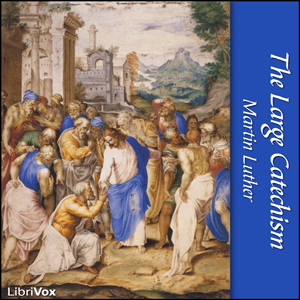A collection of fifteen short nonfiction works in the public domain. The essays, speeches and reports included in this collection were independently selected by the readers, and the topics encompass history, politics, medicine, nature and religion. Included in this collection are speeches by George Washington and Abraham Lincoln, Martin Luther's Ninety-five Theses, several interesting or historic articles from Vanity Fair and the NY times, as well as writings of Eugene Debs, Alexander von Humboldt, Lena Morrow Lewis, Joseph Lister and C. M. Ellis. (summary by J. M. Smallheer)
15 episodes
This is a detailed and accurate account of the most
awful marine disaster in history, constructed from the real facts as obtained from those on board who survived (gutenberg.org).
19 episodes
Principles of Economics was a leading economics textbook of Alfred Marshall (1842-1924), first published in 1890. Marshall began writing the book in 1881, and he spent much of the next decade at work on it.His plan for the work gradually extended to a two-volume compilation on the whole of economic thought; the first volume was published in 1890 to worldwide acclaim that established him as one of the leading economists of his time. It brought the ideas of supply and demand, of marginal utility and of the costs of production into a coherent whole, and became the dominant economic textbook in England for a long period. The second volume, which was to address foreign trade, money, trade fluctuations, taxation, and collectivism, was never published at all. (Summary from Wikipedia)This reading is based on the eighth edition, published in 1920.
6 episodes
Einhard was employed by Charlemagne as a court historian. At the request of Charlemagne's son and successor Louis the Pious, he wrote a biography of Charlemagne, the Vita Karoli Magni or Life of Charlemagne (c. 817–830), which provides much direct information about Charlemagne's life and character. In composing this he made full use of the Frankish Royal annals. Einhard's literary model was the classical work of the Roman historian Suetonius, the Lives of the Caesars. (summary adapted from Wikipedia by K. Merline)
5 episodes
The Koran (Qur'an) is regarded by Muslims as the word of God (Allah) as revealed to the prophet Muhammad. It is divided into 114 chapters (surahs), arranged roughly by length. This version, The Meaning of the Glorious Koran, is a widely used English translation of the Koran by a Muslim Englishman. Many Muslims, however, including Pickthall, believe that true translations of the Koran from the original Arabic are impossible, and see translations into other languages only as useful interpretations. (Summary by Leon Mire)
69 episodes
Brooks Adams (1848-1927), was an American historian and a critic of capitalism. He believed that commercial civilizations rise and fall in predictable cycles. First, masses of people draw together in large population centers and engage in commercial activities. As their desire for wealth grows, they discard spiritual and creative values. Their greed leads to distrust and dishonesty, and eventually the society crumbles. In The Law of Civilisation and Decay (1895), Adams noted that as new population centers emerged in the west, centers of world trade shifted from Constantinople to Venice to Amsterdam to London. He predicted in America’s Economic Supremacy (1900) that New York would become the centre for world trade. The Theory of Social Revolutions was written in 1913. (Wikipedia)
6 episodes
The experiments herewith reported were undertaken with the view of introducing certain improvements into the oil-drop method of determining e and N and thus obtaining a higher accuracy than had before been possible in the evaluation of these most fundamental constants.Physical Review, Vol. II, No. 2
3 episodes
FRANCES CALDERON DE LA BARCA, born in Edinburgh, 1804, the daughter of William Inglis. After her father's death she settled in America, where she married the Spanish diplomat, Don Angel Calderon de la Barca. She accompanied him on his various appointments to Mexico, Washington, and finally to Madrid, where she was created Marquesa de Calderon de la Barca by Alfonso XII and died in 1882. The present work is the result of observations made during a two years' residence in Mexico, by a lady, whose position there made her intimately acquainted with its society, and opened to her the best sources of information in regard to whatever could interest an enlightened foreigner. It consists of letters written to the members of her own family, and, really, not intended originally--however incredible the assertion—for publication. Taken from text itself and part of preface.
56 episodes
As a girl, Lady Duff-Gordon was noted both for her beauty and intelligence. As an author, she is most famous for this collection of letters from Egypt. Lady Duff-Gordon had tuberculosis, and went to Egypt for her health. This collection of her personal letters to her mother and her husband. By all accounts everyone loved her, and the letters are very personal in style and content. The letters are as much an introduction to her person as a record of her life on the Upper Nile.
124 episodes
Democracy in America was published in two volumes, the first in 1835 and the second in 1840. It is a classic work on the United States in the 1830s and its strengths and weaknesses as seen from a European point of view. It is also regarded as a pioneering work of sociology. (Summary based on Wikipedia)
39 episodes
Wild Life in Woods and Fields by Arabella B. Buckley is a collection of stories that will encourage children to become little naturalists and explore the majesty of the great outdoors. This is science taught in such a charming, delightful way that children will learn without even realizing it! (Summary by Laura Caldwell)
13 episodes
A collection of fifteen short nonfiction works in the public domain. The essays, speeches, news items and reports included in this collection were independently selected by the readers, and the topics encompass history, politics, philosophy, science and religion. (summary by J. M. Smallheer)
Danger Signals and A Midsummer's Night Trip were coauthored by Jaspar Ewing Brady
15 episodes
The Critique of Practical Reason (Kritik der praktischen Vernunft) is the second of Immanuel Kant's three critiques, first published in 1788. It follows on from his Critique of Pure Reason and deals with his moral philosophy. The second Critique exercised a decisive influence over the subsequent development of the field of ethics and moral philosophy, becoming the principle reference point for ethical systems that focus on the rightness or wrongness of actions themselves, as opposed to the rightness or wrongness of the consequences of those actions. Subsequently termed “deontological ethics”, Kant’s ethical system also laid the groundwork of moral absolutism, the belief that there are absolute standards against which moral questions can be judged, and that certain actions are right or wrong, devoid of the context of the act. (Summary by Wikipedia and Ticktockman)
19 episodes
The Bill of Rights are the first ten amendments to the United States Constitution, and were ratified on December 15, 1791.
23 episodes
Hallel (Hebrew: הלל "Praise [God]") is part of Judaism's prayers, a verbatim recitation from Psalms 113-118, which is used for praise and thanksgiving that is recited by observant Jews on Jewish holidays. Summary from Wikipedia
6 episodes
In this book, his most famous, Max Stirner presents a philosophical case for a radical egoism that shuns the socially-oriented outlooks of both "establishment" ideologies and of revolutionaries in favor of an extreme individualism. The book is most widely talked about today only through the lens of other philosophers' thought: Karl Marx and Friedrich Engels launched a famous assault on it in The German Ideology, and some draw a connection between Stirner's thoughts here and Nietzsche's egoism a generation later. But it is worth reading in its own right, as much for its lyricism as the challenge of its philosophical proposals. (Summary by Mat Messerschmidt)
40 episodes
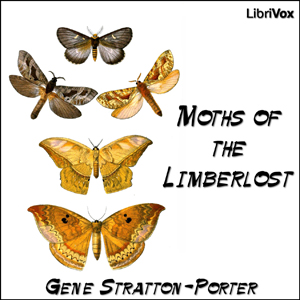
Gene Stratton-Porter (August 17, 1863 - December 6, 1924) was an American author, amateur naturalist, wildlife photographer, specializing in the birds and moths in one of the last of the vanishing wetlands of the lower Great Lakes Basin. The Limberlost and Wildflower Woods of northeastern Indiana were the laboratory and inspiration for her stories, novels, essays, photography, and movies. She was an accomplished author, artist and photographer and is generally considered to be one of the first female authors to promulgate public positions; conserving the Limberlost Swamp in her case. Although Stratton-Porter wanted to focus on nature books, it was her romantic novels that made her famous and generated the finances that allowed her to pursue her nature studies. In Moths of the Limberlost, she shares her lifelong love of the moths she describes through a series of charming anecdotes and wonderfully descriptive passages, providing vivid detail of each stage of their life cycles. (Summary adapted from wikipedia and expanded by J. M. Smallheer)
15 episodes
The Mirror of the Sea (collection of autobiographical essays first published in various magazines 1904-6 ), 1906 (Summary from Wikipedia)
16 episodes

The Age of Reason: Being an Investigation of True and Fabulous Theology, a deistic treatise written by eighteenth-century British radical and American revolutionary Thomas Paine, critiques institutionalized religion and challenges the inerrancy of the Bible. Published in three parts in 1794, 1795, and 1807, it was a bestseller in America, where it caused a short-lived deistic revival. British audiences, however, fearing increased political radicalism as a result of the French revolution, received it with more hostility. The Age of Reason presents common deistic arguments; for example, it highlights the corruption of the Christian Church and criticizes its efforts to acquire political power. Paine advocates reason in the place of revelation, leading him to reject miracles and to view the Bible as an ordinary piece of literature rather than as a divinely-inspired text. Yet, The Age of Reason is not atheistic: it promotes natural religion and argues for a creator-God. (Summary by Wikipedia)
37 episodes
Biographical sketches of the men of Rome, written for children. (summary by Laura Caldwell)
30 episodes
Biographies of Raphael Santi, Murillo, Peter Paul Rubens, and Albrecht Durer. This is a wonderful tool for art study as there are references for further study, as well as ideas for language arts to incorporate into the study. Summary by Laura Caldwell
5 episodes
56 flavors of Pi proudly produced by LibriVox volunteers to celebrate Pi Day, 2008. (3/14) Don't worry, you don't have to listen to an infinite string of numbers: each reader presents just the first 50 digits in styles of their own choosing.In light of the spirit of this occasion (and the might of our spirited community), this LibriVox offering makes a gentle exception to the policy of faithfully presenting just the text. This is the real Pi, but served up with a side of sillies -- it's Pi a la volunteer. (Summary by Cori Samuel and Anita Roy Dobbs)
56 episodes

In the early 1900's Dr. Maria Montessori began to reform educational methods with her work the 'Case dei Bambini' in Rome, Italy. Montessori began her work by developing methods to educate mentally retarded children, the method she developed was used with several children who at age eight took the state examinations in reading and writing, the children passed with above average scores. Because of this success (which is known as the 'first Montessori Miracle') Dr. Montessori was asked to open a school for children in Rome which she did. It was called the Case dei Bambini or “Children's House”. Now 101 years after the opening of the first Children's House we have recorded the first English translation of "The Montessori Method" by Maria Montessori. This book explains the Montessori Method of Education which supports “spontaneous self-development” of children and is used in the Case dei Bambini as well as many many Montessori Schools through out the world. (Written by Shurtagal and Wikipedia)
23 episodes
Astronomy is known as the oldest of the sciences, and it will be the longest-lived because it will always have arcana that have not been penetrated."-Excerpt from the Preface of Curiosities of the Sky by Garrett Serviss
15 episodes
Marius the Epicurean is a philosophical novel written by Walter Pater, published in 1885. In it Pater displays, with fullness and elaboration, his ideal of the aesthetic life, his cult of beauty as opposed to bare asceticism, and his theory of the stimulating effect of the pursuit of beauty as an ideal of its own. The principles of what would be known as the Aesthetic movement were partly traceable to this book; and its impact was particularly felt on one of the movement's leading proponents, Oscar Wilde, a former student of Pater at Oxford. (Summary from Wikipedia)
14 episodes
Famous Men of Modern Times is a series of biographical sketches written for the purpose of making the study of history lively and interesting by giving insight into the men who lived during this time. Summary by Laura Caldwell
34 episodes
John Bunyan (November 28, 1628 – August 31, 1688), a Christian writer and preacher, was born at Harrowden (one mile south-east of Bedford), in the Parish of Elstow, England. He wrote The Pilgrim's Progress, arguably the most famous published Christian allegory. In the Church of England he is remembered with a Lesser Festival on 30 August. Bunyan became a popular preacher as well as a prolific author, though most of his works consist of expanded sermons. In theology he was a Puritan, but there was nothing gloomy about him. The portrait his friend Robert White drew, which has often been reproduced, shows the attractiveness of his true character. (Summary from Wikipedia)
4 episodes
Stanton H. King was from Barbados and followed his brothers to sea at the age of twelve in 1880. He spent only twelve years at sea for reasons given in this book. Thereafter, he became associated with the Sailors' Haven, Boston, Massachusetts and became its director. He was also a renowned Chantie singer and, in 1918, King's Book Of Chanties was published. King views the sailing life from "before the mast", that is, through the eyes of the common sailor. (Summary by Peter Kelleher)
16 episodes
Allen's books illustrate the use of the power of thought to increase personal capabilities. Although he never achieved great fame or wealth, his works continue to influence people around the world, including the New Thought movement. Allen's most famous book, As a Man Thinketh, was published in 1902. It is now considered a classic self-help book. Its underlying premise is that noble thoughts make a noble person, while lowly thoughts make a miserable person. (Summary by Wikipedia)
8 episodes
An Introduction to Metaphysics (Introduction a la Metaphysique) is a 1903 essay by Henri Bergson that explores the concept of reality. For Bergson, reality occurs not in a series of discrete states but as a process similar to that described by the Greek philosopher Heraclitus. Reality is fluid and cannot be completely understood through reductionistic analysis, which he said "implies that we go around an object", gaining knowledge from various perspectives which are relative. Instead, reality can be grasped absolutely only through intuition, which Bergson expressed as "entering into" the object. (Summary by Wikipedia)
5 episodes
Sarah Cone Bryant was an educator and storyteller who wrote several books on the importance of oral storytelling to children, and stories to tell children. This volume expounds on her theories and practices of telling stories to children, and provides several examples. Her conversational writing style makes this work as relevant for parents and teachers as it was 90 years ago. (Summary by Sean McGaughey)
19 episodes
Beautiful Joe is a real dog, and "Beautiful Joe" is his real name. He belonged during the first part of his life to a cruel master, who mutilated him in the manner described in the story. He was rescued from him, and is now living in a happy home with pleasant surroundings, and enjoys a wide local celebrity.The character of Laura is drawn from life, and to the smallest detail is truthfully depicted. The Morris family has its counterparts in real life, and nearly all of the incidents of the story are founded on fact. (Summary by Marshall Saunders)
19 episodes
The Awakening of Europe by M. B. Synge is the third book in the series, Story of the World. Included in this history is a myriad of interesting men, women, and events that shaped Europe during the years 1520-1745. (Summary by Laura Caldwell)
53 episodes
The Song of Songs (Hebrew title שיר השירים, Shir ha-Shirim), is a book of the Hebrew Bible—Tanakh or Old Testament—one of the five megillot (scrolls). It is also known as the Song of Solomon or as Canticles, the latter from the shortened and anglicized Vulgate title Canticum Canticorum, "Song of Songs" in Latin. It is known as Aisma in the Septuagint, which is short for Αισμα ᾀσμτων, Aisma aismatôn, "Song of Songs" in Greek. (From Wikipedia)
2 episodes
A biography of the famous Cleopatra of Egypt, written in a manner, equally interesting to children and to adults.
12 episodes

Di Zi Gui (弟子规), in English, means the Standards for being a Good Student and Child. It is an ancient book based on the teaching of the great Confucius that emphasises on the basic requisites for being a good person and guidelines for living in harmony with others. The source for the main outline of it is from Analects of Confucius, Book 1, Chapter 6, where Confucius said:"A young man should be a good son at home and an obedient young man abroad, sparing of speech but trustworthy in what he says, and should love the multitude at large but cultivate the friendship of his fellow men. If he has any energy to spare from such action, let him devote it to making himself cultivated."There are altogether seven chapters in Di Zi Gui, with each chapter listing one duty that a good person should follow in life. (From Wikipedia)《弟子规》(原名《訓蒙文》)是中国传统的启蒙教材之一,作者是清朝康熙年间的秀才李毓秀。後經賈存仁修訂改編而成為弟子規。其內容取自《論語·學而篇》中的第六條:「弟子入則孝,出則弟,謹而信,汎愛眾,而親仁,行有餘力,則以學文。」 《弟子规》是以三字一句,兩句一韻的的文体方式編纂而成。然后再以《總敘》、《入則孝》、《出則弟》、《謹》、《信》、《汎愛眾》、《親仁》和《餘力以學文》等部份来加以演述。(维基百科)
3 episodes
Ähnlich Jules Verne in seinem Roman "Reise zum Mittelpunkt der Erde", so führt uns auch Ernst Constantin in die Urtümliche Welt der Dinosaurier zurück. Als Handlungsort hat Ernst Constantin die damals noch unerforschte Polarregion gewählt. Sicherlich mit ein Grund, warum der Roman heute in Vergessenheit geraten ist.(Summary by Wassermann)
38 episodes
Schiller (1759 - 1805), einer der Weimarer Klassiker, bekannt als Dichter und Dramatiker, studierte zunächst Medizin, wirkte auch als Philosoph und Historiker. Seine in meisterhaftem Deutsch geschriebene Geschichte des dreißigjährigen Kriegs gibt tiefe Einblicke in diesen und seine weitreichenden Folgen. Summary by redaer)
34 episodes
9/11 Commission Report, formally titled Final Report of the National Commission on Terrorist Attacks Upon the United States, is the official report of the events leading up to the September 11, 2001 attacks. It was prepared by the National Commission on Terrorist Attacks Upon the United States (informally sometimes known as the "9/11 Commission" or the "Kean/Zelikow Commission") at the request of the President of the United States and Congress.
The commission convened on November 26, 2002 (441 days after the attack) and their final report was issued on July 22, 2004
57 episodes
Published in 1904, The Twentieth Century New Testament is considered the first translation of the Bible into modern English. It was produced in Britain over a period of 15 years by approximately 20 people -- ministers, housewives, school teachers and businessmen -- who were united by their desire for a New Testament in the language of the people. They were advised by such scholars as J. Rendel Harris and Richard Weymouth so their rendering is quite accurate. In addition they made some effort at rearranging the New Testament books in the order scholars believe they were written -- Mark comes before Matthew, for instance. They also include brief introductions before each book. Though little-known today, the reader will find in The Twentieth Century New Testament a delightful translation that is rewarding both for in-depth study and personal reading. (Summary by Pleonic)
50 episodes
Arabella Buckley had a great love of nature and wished to impart that love to children. Birds of the Air will encourage children to observe birds in their natural environment and notice the habits of each particular bird they encounter. (Summary by Laura Caldwell)
16 episodes
The Social Contract outlines Rousseau's views on political justice, explaining how a just and legitimate state is to be founded, organized and administered. Rousseau sets forth, in his characteristically brazen and iconoclastic manner, the case for direct democracy, while simultaneously casting every other form of government as illegitimate and tantamount to slavery. Often hailed as a revolutionary document which sparked the French Revolution, The Social Contract serves both to inculcate dissatisfaction with actually-existing governments and to allow its readers to envision and desire a radically different form of political and social organization. (Summary by Eric Jonas)
48 episodes
Renowned poet Emily Dickinson (1830 - 1886) wrote many many poems. This collection, "Poems: Series One", presents the first installment of the complete poetic works of Miss Emily Dickinson. It is broken into four parts: Life, Love, Nature, and Time and Eternity.The verses of Emily Dickinson belong emphatically to what Emerson long since called "the Poetry of the Portfolio,"--something produced absolutely without the thought of publication, and solely by way of expression of the writer's own mind. The poetry found here is then entirely honest, and indicative of the authors true feelings. (Summary by Shurtagal and Thomas Wentworth Higginson)
5 episodes
"You may think that Mother Nature, like the famous "old woman who lived in the shoe," has so many children that she doesn't know what to do. But you will know better when you become acquainted with her, and learn how strong she is, and how active; how she can really be in fifty places at once, taking care of a sick tree, or a baby flower just born; and, at the same time, building underground palaces, guiding the steps of little travellers setting out on long journeys, and sweeping, dusting, and arranging her great house,--the earth. And all the while, in the midst of her patient and never-ending work, she will tell us the most charming and marvellous stories of ages ago when she was young, or of the treasures that lie hidden in the most distant and secret closets of her palace; just such stories as you all like so well to hear your mother tell when you gather round her in the twilight." (Summary from Chapter One of The Stories Mother Nature Told Her Children)
14 episodes
As that heavenly bit of chocolate melts in our mouths, we give little thought as to where it came from, the arduous work that went in to its creation, and the complex process of its maturation from a bean to the delicacy we all enjoy. This "little book" details everything you have ever wanted to know (and some things you never knew you wanted to know) about cocoa and chocolate from how the trees are planted and sustained to which countries produce the most cacao beans. Do cacao beans from various countries differ? What makes some types of chocolate higher quality than other kinds? Are there any health benefits to eating chocolate? Read on to learn the answers to these and many other questions about that wondrous little treat we call chocolate. (Summary by Allyson Hester)
10 episodes
Mutual Aid: A Factor of Evolution is a book by Peter Kropotkin on the subject of mutual aid, written while he was living in exile in England. It was first published by William Heinemann in London in October 1902. The individual chapters had originally been published in 1890-96 as a series of essays in the British monthly literary magazine, Nineteenth Century.
Written partly in response to Social Darwinism and in particular to Thomas H. Huxley's Nineteenth Century essay, "The Struggle for Existence," Kropotkin's book drew on his experiences in scientific expeditions in Siberia to illustrate the phenomenon of cooperation. After examining the evidence of cooperation in nonhuman animals, "savages," "barbarians," in medieval cities, and in modern times, he concludes that cooperation and mutual aid are as important in the evolution of the species as competition and mutual strife, if not more so. (Summary by Wikipedia)
12 episodes
A collection of memoirs about the Peninsular War, the Battle of Waterloo, and society and personalities of Regency London and 19th century Paris, by a sometime Grenadier Guards officer, unsuccessful parliamentarian, and dandy. Gronow displays some social attitudes of the day which would now be regarded as unacceptable, but is a clever raconteur who brings to life both the horrors of war and the gaiety of high society. (Summary by Ruth Golding and Wikipedia)
10 episodes
Luther's Large Catechism consisted of works written by Martin Luther and compiled Christian canonical texts, published in April of 1529. This book was addressed particularly to clergymen to aid them in teaching their congregations. Luther's Large Catechism is divided into five parts: The Ten Commandments, The Apostles' Creed, The Lord's Prayer, Holy Baptism, and The Sacrament of the Altar. It and related documents was published in The Book of Concord in 1580. (from Wikipedia)
16 episodes
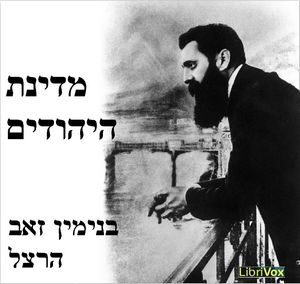
Der Judenstaat (German, The Jewish State) is a book written by Theodor Herzl and published in 1896 in Leipzig and Vienna by M. Breitenstein's Verlags-Buchhandlung. It was originally called "Address to the Rothschilds" referring to the Rothschild family banking dynasty which was very influential in the realization of a Zionist state in Palestine. It is considered to be one of the most important texts of early Zionism. As expressed in this book, Herzl envisioned the founding of a future independent Jewish state during the twentieth century. He argued that the best way of avoiding anti-Semitism in Europe was to create this independent Jewish state. Herzl, who had lived as a secular, largely assimilated Jew, was fluent in neither Hebrew nor Yiddish. His lack of contact with Jewish culture and intellectual currents, and his limited contact with Jews less assimilated than he prior to hitting upon the idea of a Jewish return to Zion, led him to imagine that popular Jewish support for a Jewish State elsewhere than in Israel was conceivable. In Der Judenstaat, Herzl noted the possibility of a Jewish state in Argentina. (Summary by Wikipedia)Translated into Hebrew by Michal Berkovitch.
13 episodes




